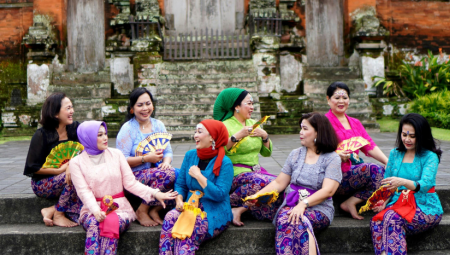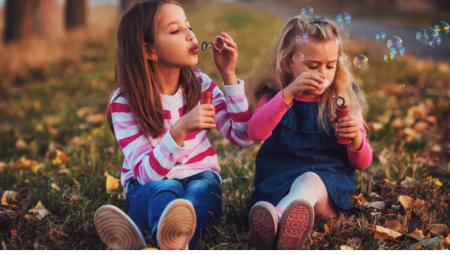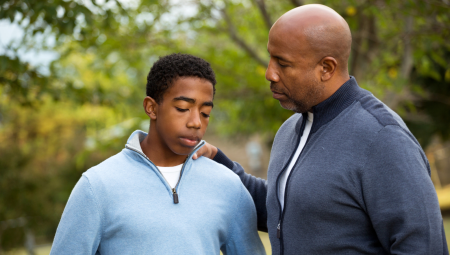Background
The aim of our project was to develop a picture book for people with learning disabilities (also referred to as people with intellectual disabilities) that explains in pictures about having an injection for the Coronavirus (COVID-19). There is already a lot of information on television, in the newspapers, on the internet and in hospitals and GP practices about the Coronavirus and the new vaccinations that have recently been developed. But this mostly involves a lot of words and sometimes in Easy Read – words and pictures. For some people, words are very hard to follow and to understand and remember.
With Public Health England reporting that individuals with learning disabilities are up to six times more likely to die from COVID-19, empowering this group of people to get a vaccine is essential. People with learning disabilities are significantly impacted by health inequalities and recent data regarding the impact of COVID-19 has highlighted the increased vulnerabilities of this group.
The research team co-created materials working with Beyond Words and in partnership with people who find pictures easier to understand than words, as well as nurses and carers, to ensure they resonate and are understandable. The final materials were freely available and distributed widely to people with learning disabilities and people who care for them, including family and friends, paid carers, nurses, GPs, social workers and other health and care professionals.
Research questions:
- Does the Beyond Words’ resource ‘Having an injection for Coronavirus’ resource improve understanding about the Coronavirus vaccine among adults with intellectual disabilities?
- Does this resource enhance communication about the Coronavirus vaccine between healthcare professionals and people with intellectual disabilities?
- What is the uptake of the coronavirus vaccination compared to national data for people with intellectual disabilities who received the Beyond Words’ resource ‘Having an injection for Coronavirus’?
Aims and objectives
This project aimed to evaluate the impact of a co-designed, visual accessible resource around the Coronavirus (COVID-19) vaccine, for people with intellectual disabilities.
It was proposed that providing accurate information that is visual, and easy to understand, working with Beyond words (https://booksbeyondwords.co.uk/) a charity focused on providing co-designed picture books for people with intellectual disabilities, will help people with intellectual disabilities and their carers (family, friends and ‘formal’ carers) to understand the importance of vaccines and improve uptake to vaccination programmes.
Project Activity
This study involved development of a co-designed story book resource (a visual resource without words) followed by a mixed methods evaluation of the impact of this resource, on uptake and understanding of the Coronavirus vaccine in people with intellectual disabilities.
As per Beyond Words’ ethos, we adopted a co-design approach, using co-research principles with people with intellectual disabilities, to develop a resource on vaccinations for people with intellectual disabilities (targeted at adults). We collaborated with Purple All Stars (a group of people with intellectual disabilities in Hertfordshire), to develop this study and the study resources.
We then evaluated whether the picture book has been useful, in different ways:
- We interviewed people with intellectual disabilities who used the picture book and ask whether it was helpful in explaining the Coronavirus injection
- We interviewed carers (family and friends), paid carers, nurses, social workers and other professionals and asked them if the picture book helped with conversations with people they care for, about having the Coronavirus injection
- In one county in England (Hertfordshire) we found out how may picture books were distributed among people with learning disabilities who live in Hertfordshire (there are around 21,000 people with a learning disability living in the county). We also found out how many people with a learning disability have had a Coronavirus injection
- We sent out a national questionnaire to professionals who work across the UK supporting people with learning disabilities (such as nurses, doctors, social workers). We found out whether they used the picture book when talking to people with learning disabilities about having the coronavirus injection.
Real world impact
A key output was a new picture story resource about the Coronavirus vaccine (COVID-19) for people with intellectual disabilities. This resource will inform and support people with intellectual disabilities and the people who care for them (families, friends, healthcare professionals) about the new coronavirus injection.
At the end of the project we wrote a report and research articles to tell people what we found from the research, in formats appropriate for different audiences including people with learning disabilities, their family carers, formal carers and health and social care professionals. We wrote summaries of our findings for newsletters and websites of NHS, health and social care organisations, professional bodies and charities such as the Royal College of Nursing, Royal College of Psychiatrists, Learning Disability England and Books Beyond Words. We presented our findings at relevant conferences and meetings.
Papers/resources associated with this study
- A widely distributed, free resource: The development of a new, co-designed resource about the Coronavirus vaccine (COVID-19) for people with intellectual disabilities. 'Having a Vaccination' is now available to download. The resource was launched by the project team at the Royal College of London on 22 September 2022. The final page acknowledges the University of Hertfordshire and the NIHR ARC East of England.





